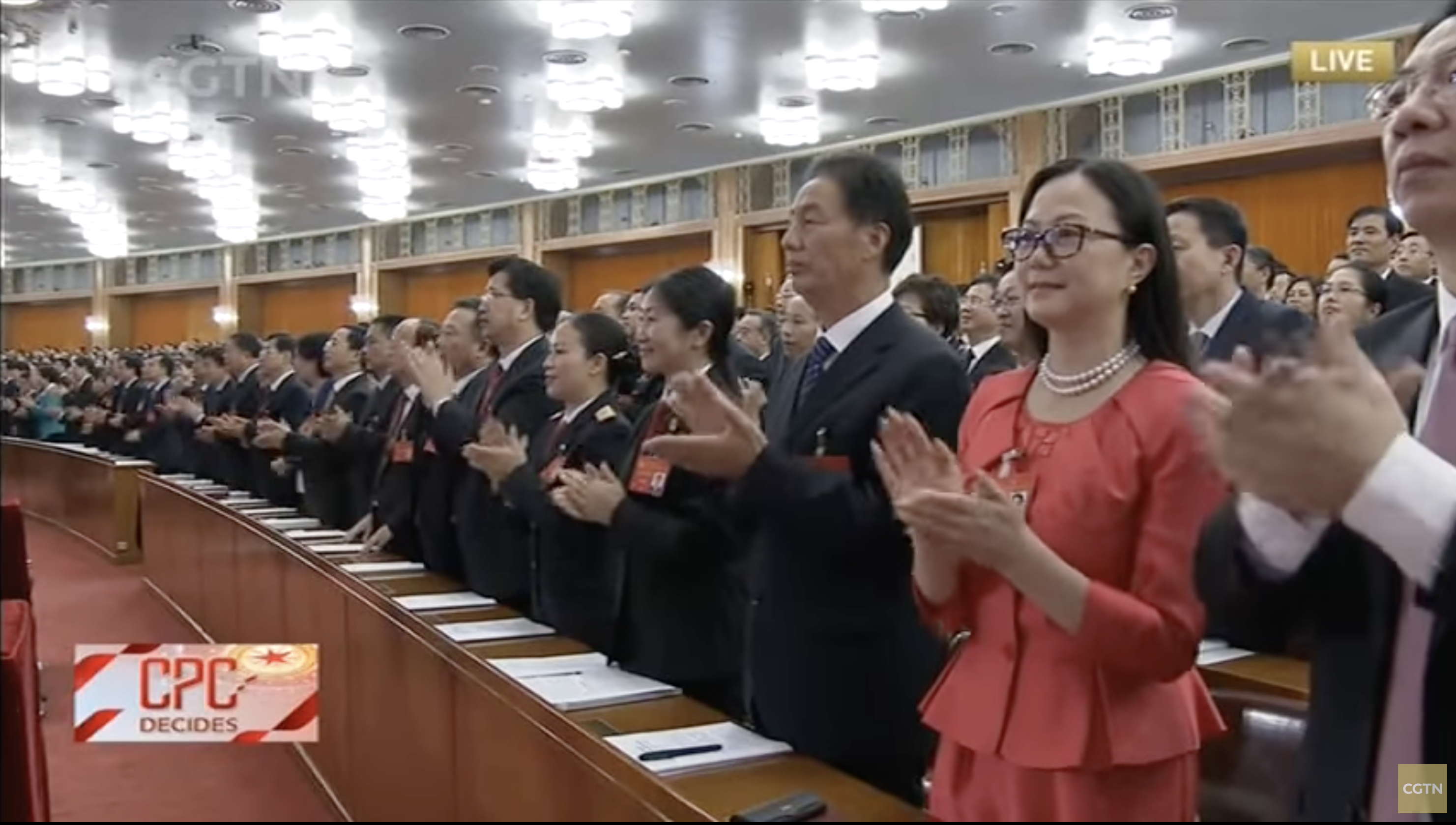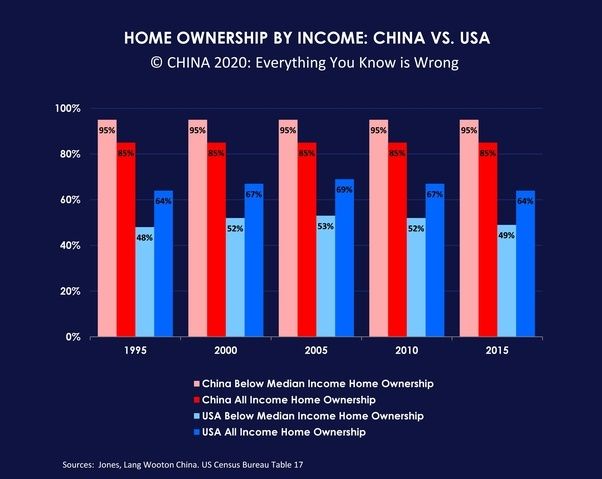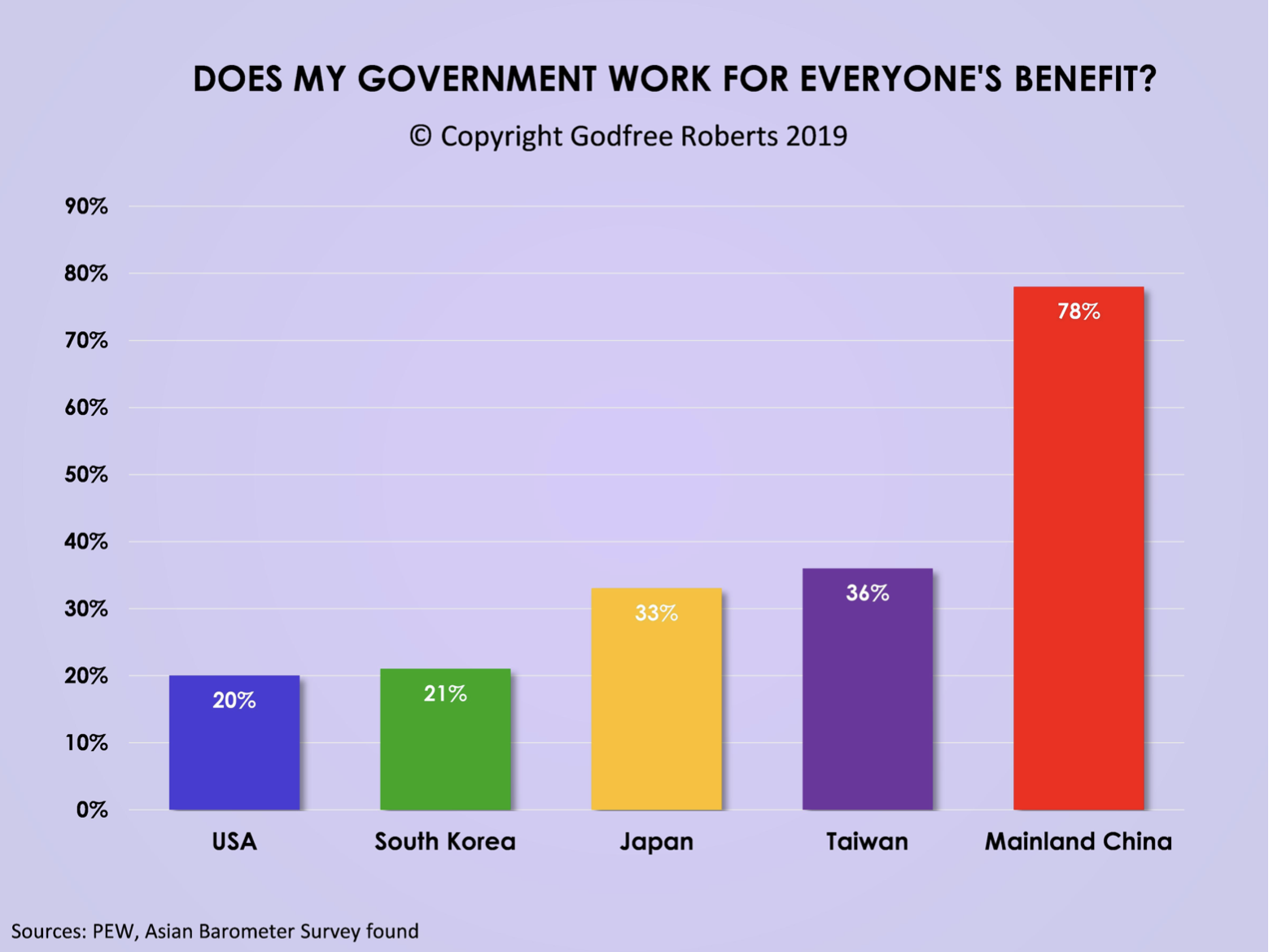The Long Game and Its Contradictions
THIS WEEK IN CHINA # 0028 (DATELINE: 9.27.2021 (First published on 10.27.2018)
If private property, money, abstract value production, class society, and the state, are abolished prematurely, when the oppressive logic and power of capital still controls the entire world, China would become vulnerable to both external imperialist violence and internal reactionary sabotage (no doubt under the banner of “democracy”).
The People’s Republic has overcome feudal corruption and colonial oppression, emerged from “100 years of humiliation” as the poorest nation on Earth, industrialised from rubble, repeatedly foiled imperialist attempts at destabilisation and sabotage, to remain 100% independent, and is today developing socialist power on the world stage. The path chosen by the Communist Party of China is now, as it has been since its inception in 1921, guided by Marxism Leninism, but not its dogmatic interpretation. Socialism with Chinese Characteristics is an advancement of classical revolutionary political theory, shaped by the concrete geopolitical realities facing China today, adapting to the global material conditions of the 21st Century.
The following is a brief bird’s-eye-view of the People’s Republic's twin path of national rejuvenation and international world historic decolonisation, paving the road toward global communisation.
NATIONAL
Nationally, the communist party aims to build a harmonious, prosperous, sustainable, and robust home base on which international engagements will rest. Domestic policy of 21st Century China hinges not only on orthodox Marxist class struggle, but a hybrid with quasi-Confucian Social Harmony. Revolutionary ideology has evolved from its earlier modes and conceptions, adapted to the particulars of Chinese culture, history, and present situation.
During the first phase of Reform and Opening up, roughly 1980 to 2000, developing from having lower GDP than the African average, China has focussed on building the productive forces on top of the industrial foundation laid down in the previous era, growing a strong mixed economy for which foreign investment was crucially important, and drastically improving conditions for the working class and rural poor. The second phase, roughly 2000 to now, has been focused on overcoming the problems which have arisen from the developmental process of the first phase. Uneven development/wealth inequality, corruption, pollution/environmental degradation, and various labour issues are problems par the course of adopting a hybrid economy in a global market dominated by neoliberalism, and of using private entrepreneurship as a tool of development.
Uneven development between urban East Coast and the large inner and Western rural regions has been addressed by the building of an elaborate highspeed rail system which connects regional economies and various initiatives which strengthen inter-regional trade. Uneven development between the entrepreneurs who got rich first and the working class and especially migrants has been addressed by a series of labour reform policies which have resulted in dramatic growth in the lowest-earning segments of Chinese society. By the most modest estimation, between 1990 and 2018 the number of Chinese people living in extreme poverty was reduced from 750m to less than 10m (Economist).
One of Xi JinPing’s first major projects after becoming leader was the epic anti-corruption drive, which punished 1.5 million state officials and business leaders for unjustly benefiting themselves at the expense of the people. Also implemented was a wide array of new policies which further restricted the excesses of private enterprise, in terms of trade practices, environmental regulation, worker’s rights, etc.
To combat pollution and climate change, during this second phase of development many decisions were made and initiatives were implemented from local to international level. These have included the reduction of reliance on coal, banning it in Beijing altogether (although not yet completely eliminated); massive reforestation projects; and becoming the global leader in green-technology investment.
On the path toward full socialisation, it is in the interest of the CPC to improve conditions for workers, fix labor issues, fight pollution, increase equality, and address uneven development, on its own terms, and according to its plans. Many such measures have taken place in recent years, such as the millions of urban youths sent to rural areas to assist in development and education, or the many stricter rules regarding worker well being which private businesses must follow at the risk of their companies being collectivised (a not at all uncommon occurrence).
But at the same time, grassroots labor movements are not only allowed, but encouraged. The vast majority of strikes and protests in China are against unjust CEOs and local officials, appealing to the central government. Beijing usually steps in on the side of the workers, punishing the capitalists and corrupt politicians, forcing them to change their ways. The few strikes and protests which are suppressed mostly belong to the category of anti-communist trouble makers with ties to insidious imperialist entities, whose aim is destabilisation (and these are of course amplified in Western media).
The lessons of compromised independent labor unions used by hostile bourgeois states to destroy socialism such as Solidarność in Poland, which doomed the nation to 4 decades of neo-liberal poverty and under development, and paved the way for the rise of Polish fascism today, are heeded by the CPC, and such organisations are not allowed. But at the end of each day, any still existing legitimate discontent and criticism must be viewed in the context of material reality: in the past 4 decades, the working class of China have seen a 400% increase in terms of real purchasing power.
According to the longest study of a people’s satisfaction with their government ever conducted by the Ash Center in China, and published by Harvard:
“In 2016, 95.5 percent of respondents were either “relatively satisfied” or “highly satisfied” with Beijing.”
INTERNATIONAL
Internationally, China’s socialist foreign policy is decidedly not a continuation of the past socialist export of revolutions, but focused on the restructuring of global trade. It is a new form of internationalism based on the promotion of independent economic development of the over-exploited nations of the Global South, through mutually beneficial relationships and a policy of peaceful co-existence. The long term goal is nothing short of the elimination of the primary contradiction of imperialist capitalism — inter-continental inequality. Ending the fundamental injustice of our age, disparity between rich and poor countries, will also spell the end of myriads of cascading ancillary injustices. Alleviating poverty, promoting trade and learning, and building relationships based on respect and cooperation, new economic alliances between colonised regions will together displace Western hegemony, break imperialist cycles of violence, and end capitalist domination.
The creation of a more equal and level global playing field will have two major effects upon the world. One: workers in the imperial core, the Global North, the “first world”, will again have bargaining power to make demands, because their jobs will no longer be easily exported to poor regions with low wages. Two: people of the imperial periphery, the Global South, the “third world”, will be empowered to set the terms of their own engagement in the world, and have the chance to build independent economic strength. This reduction of global inequality produces the material conditions necessary for global socialism with local characteristics.
Contradictions in the foreign policies of the CPC include those which result from the strict non-interference in the affairs of foreign states, which has characterised Chinese foreign relations for thousands of years, and the prioritising of larger international trade relationships over ideological conflicts. One example is unscrupulous business deals with right-wing governments, such as Saudi Arabia or Israel. The “live and let live” ethic of this modus operandi even applies to ideological enemies: China also trades with the biggest terrorist organisation in the world, the USA, without even criticising its long list of illegal wars and heinous crimes against humanity (although this may be changing). Another is not supporting local leftist struggles in partner nations, such as guerrilla Maoist insurrections in SE Asia, if it might jeopardise trade relations with state entities. If the temporary “ethical net-losses” of these contradictions lead to larger “net-gains” and positive results in the long term, they are calculated as worthwhile or unavoidable.
The CPC understands that national leaders and ruling parties are fickle and ephemeral, but development and the improvement of material conditions will have long-lasting effects. Creating a more balanced global playing field is the long game, which will create the conditions necessary for systemic change in each country, by their own agency. The phrase “Socialism With Chinese Characteristics” may have seemed clumsy and overly wordy at first, but the world will slowly come to understand its internationalist meaning, and that it is this way for a very specific reason: in anticipation of Socialism with Indian Characteristics, Socialism with French Characteristics, Socialism with USAmerican Characteristics, and 1000 socialisms with local characteristics to bloom.
As of 2019, 125 countries have signed up to the Belt and Road Initiative, The PRC’s epic effort to connect the world through infrastructure and trade, to foster cooperative relationships, to develop under-developed regions, to strengthen nations weakened by imperialism, in a world historic process of actual, material decolonisation. Due for completion by later this century, the Bri will provide ground work for further sustainable international cooperative ventures such as the Global Energy SuperGrid or the Health Silk Road.
It is a long and treacherous strategy on a grand global chessboard shaped by layers of devastating historical injustice and the cascading chaos produced by exploitative and oppressive processes, and in order to win, relatively minor contradictions and problematic particularities must not obscure or impede the realisation of larger goals.
HISTORY / THEORY
In 1921, Sun Yat Sen predicted that the fate of the Chinese people would most likely be that of the Native Americans: almost completely wiped out. Due to monarchic rot, foreign domination and abuse, and the country torn apart by warlords, infrastructure, industry, and agriculture lay in ruins; 20% of the population were addicted to opium; piles of corpses lay in the streets.
In 1950, at the birth of modern China and the Communist Party, the average life expectancy was 35 years. 2.5 decades later, at the end of the Mao era in the late 70s, it had doubled to 70, but the average citizen still lived on less than $1 a day, by many measures poorer than people in Africa, and did not have luxuries [necessities] such as indoor plumbing, refrigerators, or television sets.
Socialism could not have survived, much less thrived, under such conditions.
The 80s was an era that saw the destruction of many socialist states around the world which succumbed to ceaseless imperialist economic, political, and military violence, from USSR to Yugoslavia. In a world almost totally dominated by neo-liberalism, there were no other options for China to develop its economic strength other than growth via a limited private sector. But while capitalists exist in a mixed economy, they do not control politics like in capitalist countries, and are completely answerable to the socialist state.
In every way, the economic program devised by Zhou Enlai, under the leadership of Deng XiaoPing, continued in the direction of Maoist visionary development, in line with Lenin’s economic policies of the early USSR, and rigorously following the Marxist credo that liberation can only come from material abundance. No nation, whether socialist or capitalist, can survive in isolation, and no socialism can be built on hunger and poverty. 40 years ago the great policy of Reform-and-Opening-Up entered China into the international market, a trajectory which, in every way, should be seen as a continuation and extension of the historical legacy of Marxist Leninist theory and practice.
“Between capitalist and communist society there lies the period of the revolutionary transformation of the one into the other. Corresponding to this is also a political transition period in which the state can be nothing but the revolutionary dictatorship of the proletariat.” — Karl Marx, “in the critique of the Gotha Program”
“The state capitalism, which is one of the principal aspects of the New Economic Policy, is, under Soviet power, a form of capitalism that is deliberately permitted and restricted by the working class. Our state capitalism differs essentially from the state capitalism in countries that have bourgeois governments in that the state with us is represented not by the bourgeoisie, but by the proletariat, who has succeeded in winning the full confidence of the peasantry.“ — Vladimir Lenin, Can We Go Forward If We Fear To Advance Towards Socialism?
“So, to build socialism it is necessary to develop the productive forces. Poverty is not socialism. To uphold socialism, a socialism that is to be superior to capitalism, it is imperative first and foremost to eliminate poverty. True, we are building socialism, but that doesn’t mean that what we have achieved so far is up to the socialist standard. Not until the middle of the next century, when we have reached the level of the moderately developed countries, shall we be able to say that we have really built socialism and to declare convincingly that it is superior to capitalism. We are advancing towards that goal.” — Deng XiaoPing
SOCIALISM WITH CHINESE CHARACTERISTICS
The Communist Party of China does not in fact claim that China is today already fully socialist, but a country with a mixed economy, led by a communist state, that is actively working toward the officially stated goal of “Fully Developed Lower Stage Socialism by 2050”.
Now here are a few characteristics of socialism in China:
1) Never privatised major industries, which are all public owned. Compare this to the collapse of Yugoslavia, USSR, etc., which were all marked by an immediate devouring of national industry by private entities: true transitions to capitalism.
2) Land remains collectivised, and leased to private persons or business entities for a maximum of 70 years. While home ownership numbers are extremely high in China compared to other countries, property inheritance does not exist, thus neither does a landlord class.
3) The rich do not control politics. The CPC is comprised almost entirely of working class representatives, extremely few capitalists. In the highest governing body, the National People’s Congress, there are 26 owners of private enterprises among 2600+ members (2018).
4) In Democratic Centralism, directly democratic decision-making through elections proceeds from neighbourhood and local councils up to the National Congress, and from there and above are appointed by elected officials, according to merit. This combines the best of both democracy and meritocracy, while the dangers of both are checked by the other.
5) Never experienced the boom-bust cycles typical of capitalist economies in its 40 years of steady development at a rate of roughly 10% per year.
6) Bottom segments of Chinese society experienced 40% growth since 1979; bottom segments of USA during same period: 1%. If the USA is not a good comparison due to its drastic differences in history and position, a much better one is India, another post colonial nation developing during the same period, which actually transitioned to capitalism: exponentially more inequality, nearly no progress or even regress for the poorest segments of society.
7) CPC representatives oversee all operations of corporations, which are entirely answerable to the state. CEOs, capitalists, and the super-wealthy do not control politics and influence policy via lobbies and campaign contributions, and are not at all above the law like in the capitalist West.
8) 1.5 million capitalists and state officials punished for corruption since 2007, 17% of whom were imprisoned or executed. Compare this to capitalist countries that always reward the excesses and crimes of their elites, such as the Wall Street bankers whose excesses caused the 2008 global financial crash.
9) Very real problems created by economic infrastructure building with capitalist methods, such as uneven development, inequality, bad work conditions, corruption, pollution, etc. are clearly and repeatedly addressed publicly, and in no uncertain terms. Correctional policies addressing each of these problems have been implemented, and already have had significant results.
10) Foreign engagement is always mutually beneficial, guided by the millennia old policy of strict non-interference, in support of independent development of regions dominated by imperialism. The New Silk Road, or Belt and Road initiative, seeks to build an international brotherhood of former colonised nations, together in strength against capitalist hegemony and imperial domination.
If private property, money, abstract value production, class society, and the state, are abolished prematurely, when the oppressive logic and power of capital still controls the entire world, China would become vulnerable to both external imperialist violence and internal reactionary sabotage (no doubt under the banner of “democracy”). The Communist Party would be immediately compromised by foreign backed elements; the country might be torn apart once again by civil war, and once again subjected to imperialist domination. The Chinese revolution, what so many millions fought, worked tirelessly, and sacrificed their lives for, will have been for nothing.
Marxism is anything but rigid and dogmatic, and has always been about adapting to the ever changing objective conditions of each era, using whatever is available toward revolutionary goals. The opinion of those baizuo who think that China should have chosen the disastrous course of action described above, or at least remained underdeveloped, poor, and weak, in order to satisfy their fundamentalist interpretation of Marxism, should not be indulged. These myopic and short-sighted “left com”, “ultra-left”, or modern “Maoist” types love to denounce modern China as a betrayal of socialism, without considering that it is the failure of the Western left to do successful revolutions in their countries which made it necessary for existing socialist states to adapt to the global conditions of entrenched neo-liberal capitalism.
Those who think that 1.4 billion people, who for 200 years suffered so immensely under vicious colonial rule and brutal capitalist domination, will so quickly forget what their true enemy is, don’t know much about capitalism, colonialism, or people.
The fight against capitalism continues, but on economic grounds. Because war is the way of imperialism, and military spending accounts for 90% of US GDP, while Chinese socialism is developing alliances with Africa, South America, Europe, and other parts of Asia based on mutual development. Socialists will beat the capitalists at the (what they consider their own) game of markets with rational planning, and through peaceful trade and prosperity for all, end bourgeois global hegemony.

We will fight until the entire proletariat is liberated.
But at the same time, criticism and self-criticism remain of course a central part of Maoist thought and practice. And yes, as communists, we should of course support authentic labor movements while opposing neo-liberal forces, but also careful not to repeat the same mistakes of ultra-leftism 60 years ago which resulted in the catastrophic Cultural Revolution. The CPC has been so extraordinarily competent and successful exactly because of having adapted to much critique, and addressed the demands of activists over the years. We must remain ever vigilant, instead of becoming lazy and putting blind trust in the state, which is always in danger of being corrupted and led astray, by (in the context of Chinese socialism) either the left or right.
The entrenched and pervasive structures of capitalism took 500 years to build, and the propertarian system of which it is an extension, 6000 years. Its dissolution requires strategies on a scale bigger and longer than is easily conceived or understood by any individual without many years of dedication, and will take more than a few decades to unfold.
Western liberals think in terms of quarterly reports and election cycles. Eastern communists think in terms of centuries, if not millennia.
ABOUT THE AUTHOR:
He Zhao
THIS ESSAY APPEARED ON THE AUTHOR'S PAGE ON MEDIUM.
THIS ESSAY IS AVAILABLE IN AN AUDIO/VIDEO VERSION:
The views expressed herein are solely those of the author and may or may not reflect those of The Greanville Post. However, we do think they are important enough to be transmitted to a wider audience.
Don’t forget to sign up for our FREE bulletin. Get The Greanville Post in your mailbox every few days.
YOU ARE FREE TO REPRODUCE THIS ARTICLE PROVIDED YOU GIVE PROPER CREDIT TO THE GREANVILLE POST
VIA A BACK LIVE LINK.

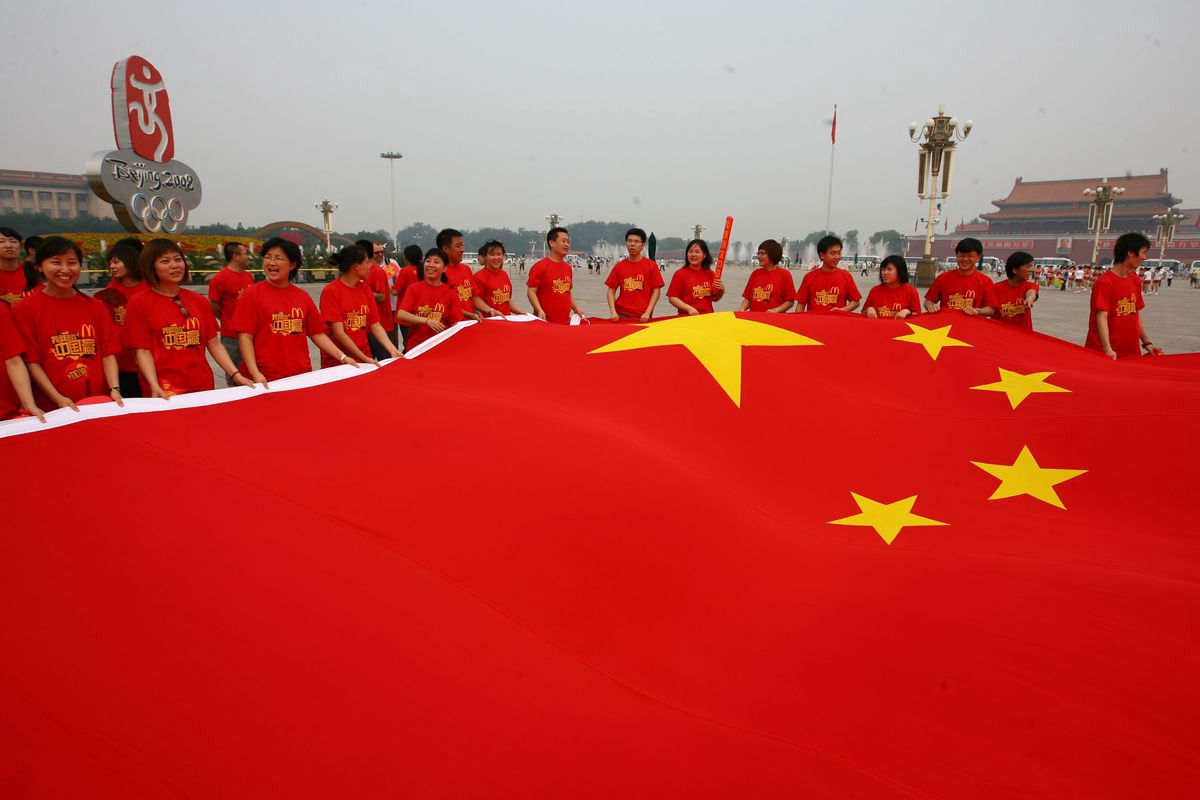
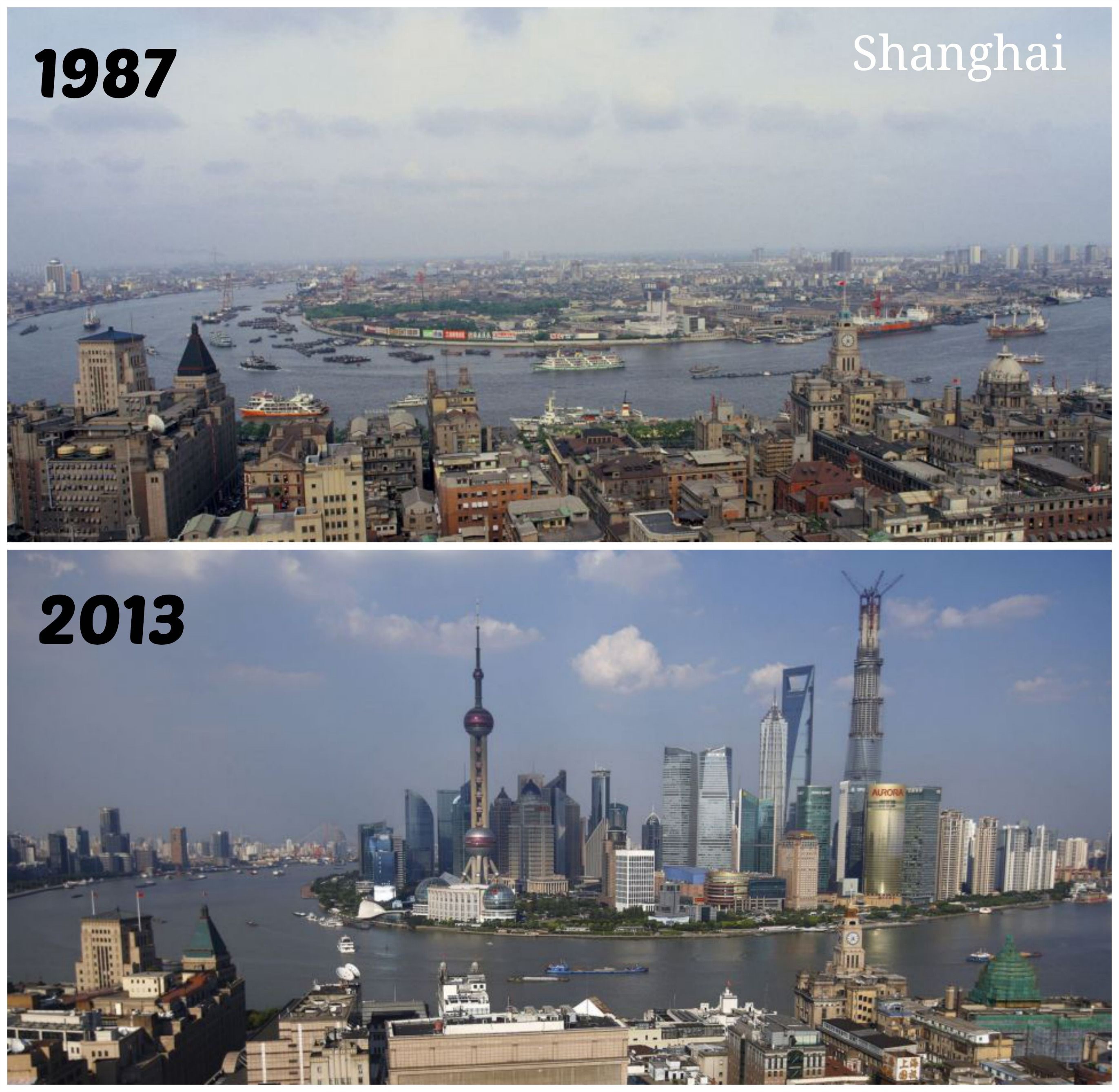

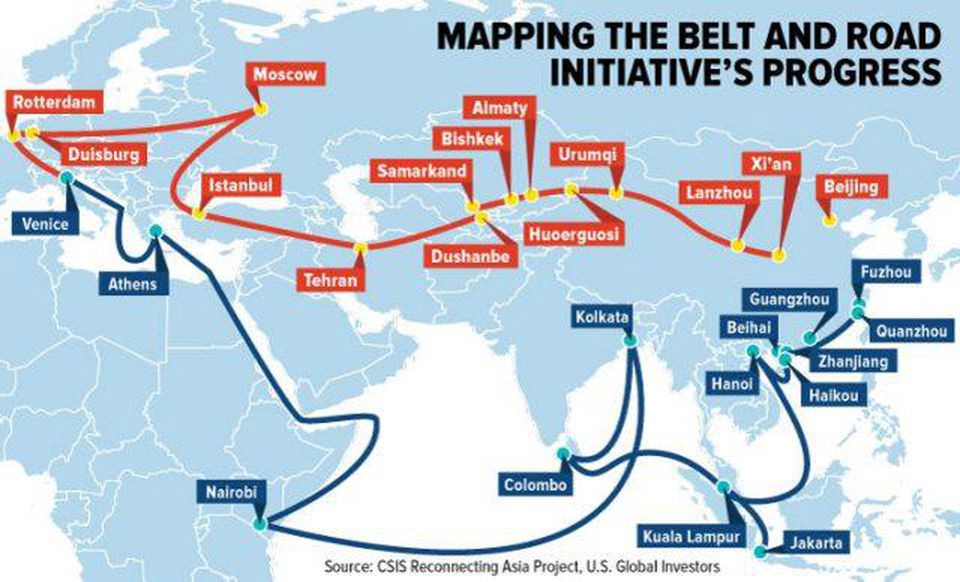

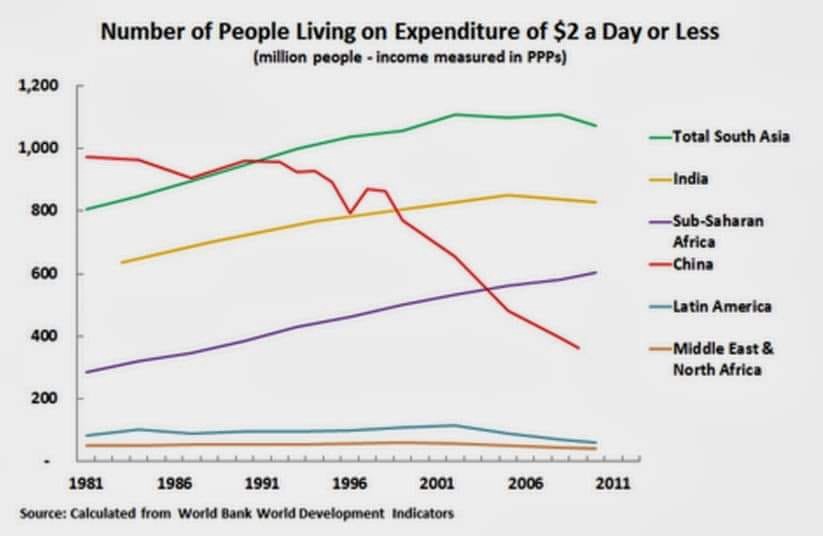


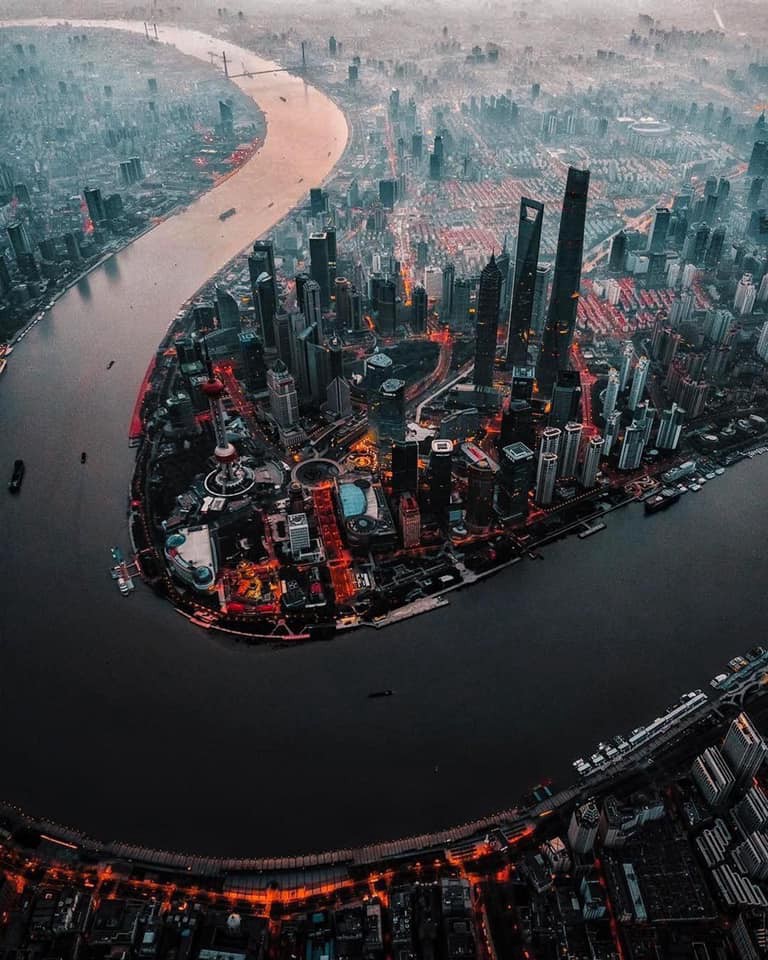



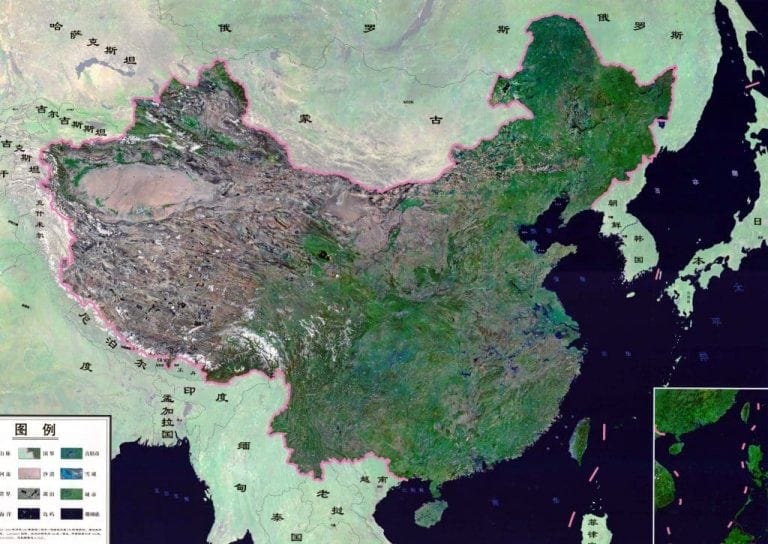 Guided by Xi Jinping Thought (which, like Deng’s Thought which preceded it, is a plan and its ethical justification) the National Family will then attempt to create a dàtóng society, an advanced version of Marx’s notion of Communism, ‘from each according his ability, to each according to his need’. Once it is clear that virtually every Chinese is on board with this program, this account of the steps towards it makes sense.
Guided by Xi Jinping Thought (which, like Deng’s Thought which preceded it, is a plan and its ethical justification) the National Family will then attempt to create a dàtóng society, an advanced version of Marx’s notion of Communism, ‘from each according his ability, to each according to his need’. Once it is clear that virtually every Chinese is on board with this program, this account of the steps towards it makes sense.








